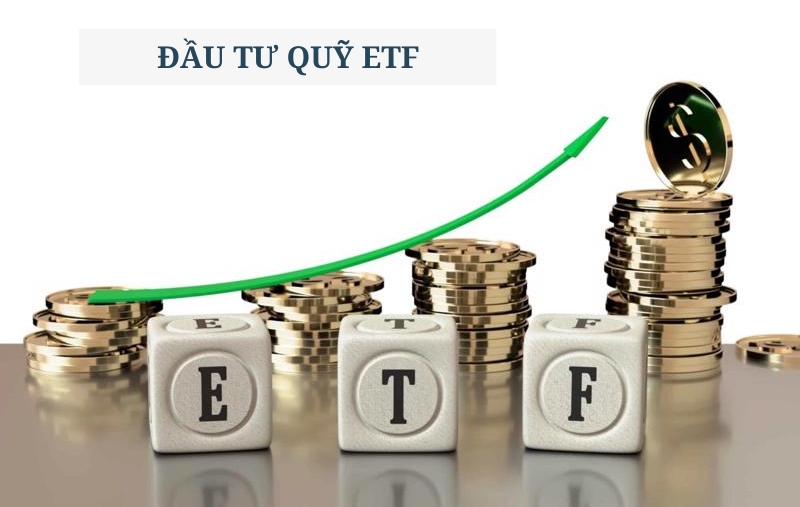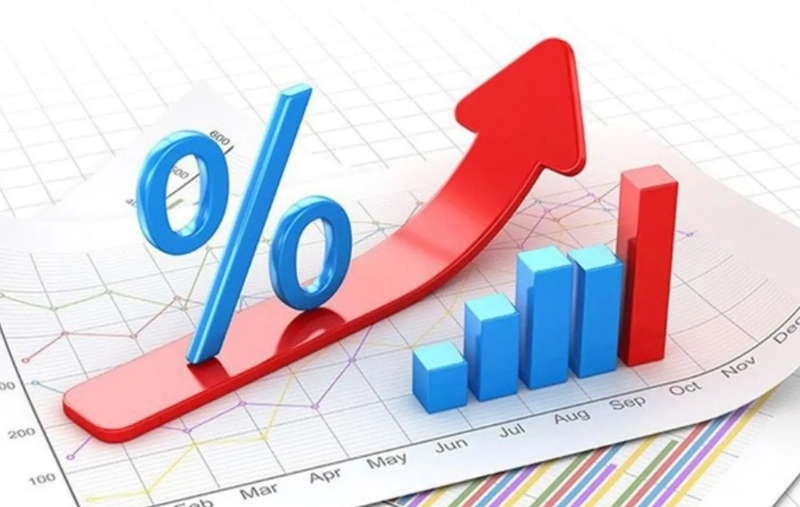What Is Foreign Exchange? A Comprehensive Guide to the Forex Market
Corporate
14/04/2025
Understanding what foreign exchange (forex) is, along with the characteristics, opportunities, and risks of participating in the forex market, is crucial for making informed investment decisions.
The foreign exchange market is one of the largest and most dynamic financial markets globally, where investors trade various foreign currencies to seek profits. But what exactly is foreign exchange, and how does this market operate? VPBank will provide a comprehensive overview of the forex market to give you a clear and complete understanding.
1. What Is Foreign Exchange (Forex)?
Foreign exchange (forex) refers to assets or the right to use assets that have been valued and can be converted into the currency of another country. To be recognized as foreign exchange, these assets must be used by countries as a method of payment in international transactions and be widely accepted by the international community. In other words, foreign exchange encompasses not only currencies but also various high-value convertible assets in the global economy.
Hiểu rõ khái niệm cơ bản về ngoại hối
Forms of Foreign Exchange Include:
-
National Currency (Domestic Currency): The currency of each nation, when used in international transactions or import/export activities, is recognized as foreign exchange and can be converted between different economies.
-
Securities Equivalent to Foreign Currency: These include instruments like corporate bonds, government bonds, and shares.
-
Gold: Gold is considered a traditional foreign exchange asset and consistently maintains high value in international transactions, such as gold bars, gold ingots, national gold reserves, and foreign resident gold holdings.
-
Foreign Currency Payment Instruments: These are payment instruments denominated in the currency of another country, such as checks, bank cards, bills of exchange, promissory notes, and bank transfer orders.
-
Virtual Currencies: Popular examples include Bitcoin and Ethereum.
-
Foreign Currency (Foreign Currencies): This refers to the currency of another country or the common currency of a group of countries, such as the Euro or the US Dollar, which are widely used in international financial transactions.
2. What Is the Foreign Exchange Market and How Does It Operate?
Once you understand what foreign exchange is, it's essential to grasp the nature and operation of the foreign exchange market (Forex).
2.1. Concept of the Foreign Exchange Market
The foreign exchange market (Forex) is a global, decentralized market where currencies are bought and sold. It's an integral part of the international financial system, with continuous currency transactions facilitating the conversion of money between countries for trade, investment, and speculation. The Forex market doesn't have a single centralized exchange; instead, transactions occur through a vast network of banks, financial institutions, and investors.
The market operates 24 hours a day, five days a week, with transactions taking place across major financial centers globally. Exchange rates (the value of one currency relative to another) are determined by factors such as economic data, geopolitical events, and central bank policies, with a strong influence from market supply and demand.
Thông tin cơ bản về thị trường ngoại hối
See also: Ngân hàng thương mại là gì? Phân loại, đặc điểm và chức năng
2.2. Operating Mechanism
The foreign exchange market operates on a mechanism of currency exchange between counterparties. Investors and institutions participate in the market to exchange currencies for various purposes, including international trade, investment, or speculating on exchange rate fluctuations.
Exchange rates, the value of one currency compared to another, are determined by the forces of supply and demand. Factors influencing exchange rates include economic indicators, central bank policies, geopolitical events, and other significant considerations.
2.3. Participants in the Foreign Exchange Market
The Forex market is not exclusively for large financial institutions; it involves a diverse range of participants. Individual investors, commercial banks, central banks, investment funds, multinational corporations, and speculators are the primary entities involved in the market.
Each participant enters the market with different objectives, ranging from executing commercial transactions to speculating on exchange rate movements.
See also: Giải ngân là gì? 6 hình thức giải ngân khoản vay phổ biến nhất
2.4. Traded Commodities in the Foreign Exchange Market
The primary commodities traded in the foreign exchange market are the currencies of various countries. Each currency has its own value and is typically traded in pairs, for example, EUR/USD (Euro versus US Dollar), USD/JPY (US Dollar versus Japanese Yen), or GBP/USD (British Pound versus US Dollar).
Các hàng hóa giao dịch phổ biến trên Forex
Additionally, derivative products such as futures contracts and options related to exchange rates are also traded in the forex market.
3. Distinguishing Foreign Exchange from Foreign Currency
To better understand the differences between foreign exchange and foreign currency, refer to the detailed comparison table below:
|
Ccriteria |
Foreign Currency |
Foreign Exchange |
|
Definition |
The currency of one country used in another country. |
Encompasses foreign currency and all currency-related transactions of various nations. |
|
Scope of use |
Used in commercial transactions, tourism, international investment. |
Relates to transactions, speculation, and currency exchange in international financial markets. |
|
Example |
USD, EUR, GBP, JPY, VND (in other countries). |
Trading between currencies like USD/EUR, USD/JPY in the Forex market. |
|
Trading Activity |
Used in international payment transactions, purchasing goods/services, tourism. |
Occurs in financial markets, including the foreign exchange (Forex) market, and currency-related derivative contracts. |
|
Purpose |
Buying/selling, paying for goods/services, or international investment. |
Speculating on exchange rate fluctuations, generating profit from currency value differences. |
|
Related Markets |
No centralized market, solely used in commercial transactions. |
The foreign exchange (Forex) market is where international currencies are bought and sold. |
Hiểu rõ về đồng ngoại tệ và ngoại hối
Xem thêm: Mã OTP là gì? Tại sao mã OTP cực kỳ quan trọng trong giao dịch?
4. How to Invest in the Foreign Exchange Market
Simply understanding the concept of foreign exchange isn't enough to participate in the forex market. Investors can choose from one of three trading methods below:
- Forex Spot Market (Forex Spot): This involves buying and selling foreign currencies with immediate settlement at the time of the transaction, allowing investors to receive funds as soon as the trade is complete.
- Forex Forward Market (Forex Forward): This involves buying and selling foreign currencies at a pre-agreed exchange rate, but settlement occurs at a specific future date, based on the agreement between the two parties.
- Forex Futures Market (Forex Futures): Trading occurs through futures contracts, where the exchange rate and settlement time are mutually agreed upon, with a clear future date for the transaction to be executed.
Cách thức để có thể đầu tư vào thị trường ngoại hối
Each trading method has distinct characteristics and risks, making them suitable for different investor needs and strategies.
Xem thêm: Hạn mức thẻ tín dụng là gì? 2 cách nâng hạn mức đơn giản nhất
5. Benefits and Risks of Foreign Exchange Trading
Participating in foreign exchange transactions comes with various advantages and disadvantages. Here are some fundamental benefits and risks of investing in this market:
5.1. Benefits of Foreign Exchange Trading
Forex trading offers numerous opportunities for investors, especially in the global financial environment. Some prominent benefits of participating in this market include:
-
High Liquidity: The Forex market is the largest and most liquid financial market in the world, allowing investors to easily buy and sell foreign currencies at any time without liquidity issues.
-
Profit Opportunities from Exchange Rate Fluctuations: Investors can capitalize on exchange rate volatility to generate profits, particularly in highly volatile market situations or when economic news impacts currency values.
-
24/5 Market Operation: The Forex market operates 24 hours a day, five days a week, from Monday morning to Friday evening. This allows investors worldwide to trade flexibly, regardless of different time zones.
-
Financial Leverage: The Forex market offers high leverage, enabling investors to control a larger amount of capital compared to their initial outlay. This can increase potential profits but also comes with amplified risks.
Lợi ích khi thực hiện giao dịch ngoại hối
5.2. Risks of Foreign Exchange Trading
While foreign exchange trading offers opportunities for high returns, it also presents significant risks that investors must be aware of and manage:
-
High Exchange Rate Volatility: The Forex market can experience sharp fluctuations in a short period, leading to substantial losses for investors if they lack an effective trading strategy. Economic, political, or natural disaster events can heavily influence exchange rates and create unforeseen risks.
-
Leverage Risk: High leverage can magnify profits but also increases the risk of losses if a trade is unsuccessful. Investors could lose a significant portion or even all of their invested capital if the market moves contrary to their predictions.
-
Lack of Experience and Trading Strategy: Without solid knowledge of the foreign exchange market and a suitable trading strategy, individuals may make poor decisions, leading to losses. The Forex market demands strong analytical skills in both technical and fundamental analysis.
-
Psychological Risk: The Forex market is often very stressful and unpredictable. This makes investors susceptible to emotions such as greed and fear, leading to impulsive and ill-considered trading decisions. Consequently, you are highly likely to make mistakes that result in significant financial losses.
Những rủi ro khi tham gia thị trường Forex
Có thể bạn quan tâm:
-
Tài khoản ngân hàng là gì? Có mấy loại? Cách lựa chọn tối ưu
-
Vay thế chấp ngân hàng cần lưu ý gì? 9 kinh nghiệm tốt nhất 2023
-
Ngân hàng số là gì? Lợi ích nổi bật cho người dùng hiện nay?
VPBank has provided a detailed explanation of what foreign exchange is to offer a comprehensive overview. The foreign exchange market presents opportunities for profitable investment but also carries considerable risks. Therefore, a clear understanding of the influencing factors and trading mechanisms will help you participate with greater confidence.
We hope this article has expanded your knowledge, enabling you to make accurate and effective investment decisions. If you wish to learn more about financial products and services, please visit www.vpbank.com.vn or contact our hotline at 1900.54.54.15 for support!




